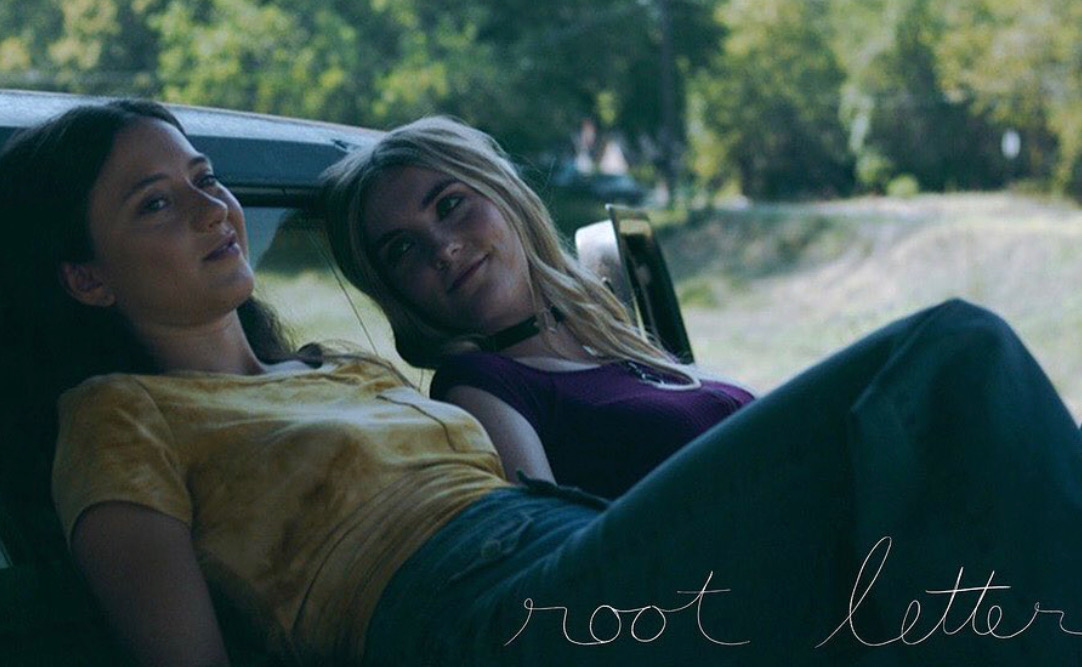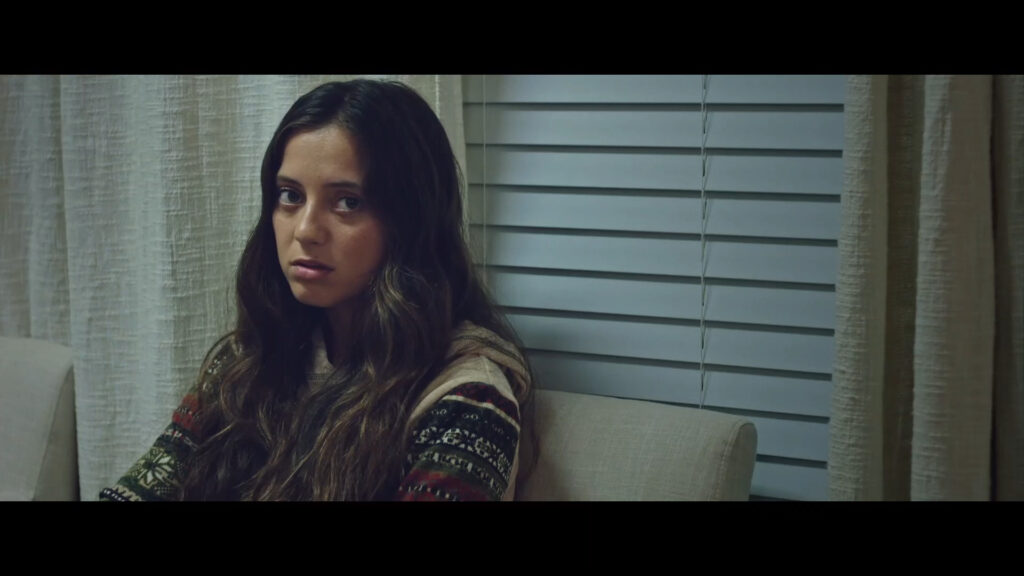
Much like that letter you find wedged between two documents while you’re organizing your files, the movie Root Letter is an unexpected object, a welcome event, deserving of consideration and attention.
Root Letter is one of my favorite video games, arguably the most accomplished and mature visual novel I know, a rare and disquieting object of tranquility, executed with remarkable narrative precision and mastery. It’s a game that still leaves me in awe today.
Imagine my surprise when, thanks to the magic of social media algorithms, I discovered the existence of an officially adapted film in development—not a Japanese drama, but an American independent film.
I awaited this film with a mix of anticipation, apprehension, and a bit of fantasy. And then I got the chance to see it, shortly after its release, on the TUBI platform.
An Epistolary Investigation
Root Letter follows Carlos, a somewhat adrift young man who sets out to trace Sarah, his pen pal in a chain of letters organized by their respective schools.
When he receives a final letter from Sarah confessing to a murder, and because he doesn’t necessarily have anything else to do at that precise moment in his life, he decides to find her and uncover the truth. As he meets people along the way, Carlos unravels the mystery surrounding Sarah, always hoping to find her and perhaps extricate her from the problematic knot that seems to be her existence.
So yes, it’s a plot start that’s hard to digest for a contemporary film, to see young adults engage in paper correspondence. What worked very well for a Japanese game with an uncertain temporality falls a bit flat here and requires as much from the sensitivity of its two protagonists as from the audience’s suspension of disbelief. Carlos and Sarah are thus outsiders, beings lost enough to indulge in letter writing even though they have never heard of each other.
But from this estrangement emerges a plot, a chase for, ultimately, a demand for more escape to better aspire to normalcy, at last.

A Matter of Aesthetics
Beyond this similar “pitch,” there’s an unexpected parallel between Root Letter the game and the film to identify, and it’s probably its impeccable taste.
The bittersweet melancholy of Sonja O’Hara’s film is first and foremost what characterizes her work and carries her narrative. Pastels paint the bitter sweetness of this uneventful America where young adults struggle amid desires to break the oppressive chain of everyday life, in gentle perdition. It’s an America that we see little to none of in the mainstream Hollywood or Netflix fare.
In the game, it was also a rather rural Japan that was presented, the chronicle of a small town without history, far from the tumults of the metropolis, where the protagonist, a city dweller, clashed with characters as endowed with common sense as with heavy secrets.
Where the film diverges, however, is in its almost horrific exploration of certain scenes and makeup, especially when depicting the addictions and the slow mental decay of Sarah’s mother, whose portrayal sometimes verges on the fantastical.
A Quest for Simplicity
There is something admirable about the character of Sarah, as admirable as this quest so seldom told in contemporary narratives. This quest is one for security and simplicity.
For this young girl who has to cope alone with a drug-addicted mother reduced to monstrosity, where the presence of a man in the house is only ghostly, faceless, there are other dreams to chase in life than the special, the exceptional, or the thrill of crime.
Sarah has more than her friends, in that she only aims to build her life on a more or less stable foundation. While her circle seeks only to dabble in naughtiness to flee a daily life stifling with monotony, she must handle the rejection of a mother who prefers drugs to her daughter and the temptation of joining a seemingly respectable family that harbors in its psyche’s trunk another monster just as sticky with suffering.
Salvation lies in a final letter that confesses a wish for a simple life, a plea for safety, which will find its place at the end of the story in the adoption of a new name, at the site of a menial job. A place of restructuring, of respite, like the site of a prayer answered, a place where Sarah and Carlos will finally come to find each other.

Bifurcations
Little to nothing is findable about the origin of this project, except that the American branch of the Japanese mobile gaming company Akatsuki around 2018 initiated the film’s production to diversify their activities.
While one would wish more attention had been given to the film, to its genesis, it is quite appreciable to count among the trans-media works between cinema and video games this work that stands out from the rest. A film that takes its own path, to write its own correspondence by emancipating itself from the original narrative while retaining an elegance and melanch
oly inherent to the culture in which it thrives.
As for me, the Root Letter film will remain an object I cherish, like a postscript as unexpected as it is incongruous and appreciable to my experience with the game.
